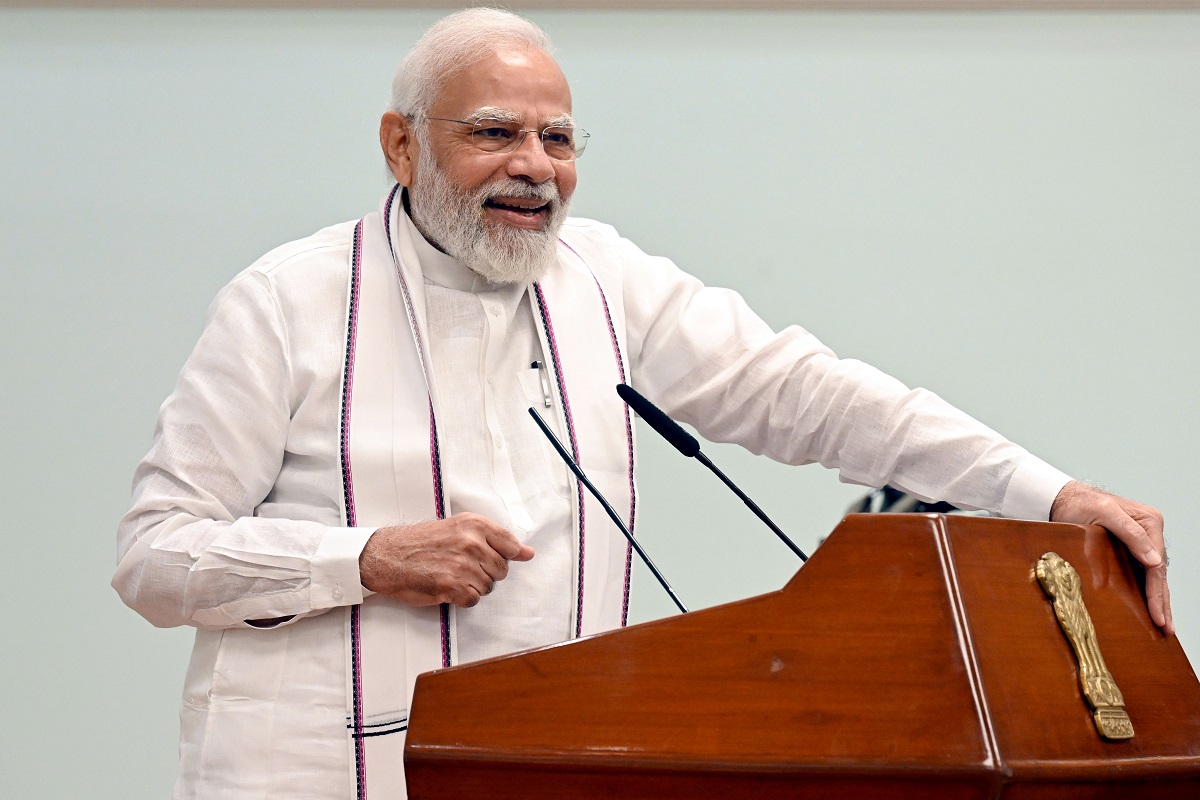30 Indian startups raised $250 million in funding last week
At least 30 startups raised $248.87 million in funding last week as the Indian startup ecosystem continues to shine due to strong fundamentals of the economy.
Under this scheme government will provide credit guarantee up to a specified limit against loans extended by Member Institutions (MIs) to finance eligible borrowers viz. Startups as defined in the Gazette Notification issued by DPIIT and amended from time to time, it added.

(ANI Photo)
The Department for Promotion of Industry and Internal Trade (DPIIT) has notified the establishment of the Credit Guarantee Scheme for Startups (CGSS) for providing credit guarantees to loans extended by Scheduled Commercial Banks, Non-Banking Financial Companies and Securities and Exchange Board of India (SEBI) registered Alternative Investment Funds (AIFs), Ministry of Commerce and Industry said in a statement.
Under this scheme government will provide credit guarantee up to a specified limit against loans extended by Member Institutions (MIs) to finance eligible borrowers viz. Startups as defined in the Gazette Notification issued by DPIIT and amended from time to time, it added.
Advertisement
The statement released by the Ministry elaborates that the credit guarantee cover under the Scheme would be transaction-based and umbrella based. There will be a capping of Rs. 10 crores per case to individual cases or the actual outstanding credit amount, whichever is less.
Advertisement
In respect of transaction-based guarantee cover, the guarantee cover is obtained by the MIs on a single eligible borrower basis. Transaction-based guarantees will promote lending by Banks/ NBFCs to eligible startups.
The extent of transaction-based cover will be 80 per cent of the amount in default if the original loan sanction amount is up to Rs. 3 crores, 75 per cent of the amount in default if the original loan sanction amount is above Rs. 3 crore, and up to Rs. 5 crores, and 65 per cent of the amount in default if the original loan sanction amount is above Rs. 5 crores (up to Rs. 10 crores per borrower).
The umbrella-based guarantee cover will provide a guarantee to Venture Debt Funds (VDF) registered under AIF regulations of SEBI (a growing segment of funding in the Indian startup ecosystem), in view of the nature of funds raised by them and debt funding provided by them.
The extent of umbrella-based cover will be the actual losses or up to a maximum of 5% of Pooled Investment on which cover is being taken from the fund in eligible startups, whichever is lower, subject to a maximum of Rs.10 crore per borrower.
Along with institutional mechanisms for operationalizing the Scheme, DPIIT will be constituting a Management Committee (MC) and a Risk Evaluation Committee (REC) for reviewing, supervising, and operational oversight of the Scheme. The National Credit Guarantee Trustee Company Limited (NCGTC) will be operating the Scheme.
Prime Minister Narendra Modi launched Startup India Action Plan on 16th January 2016 to lay the foundation of Government support, schemes and incentives envisaged creating a vibrant startup ecosystem in the country. The Action Plan envisaged a Credit Guarantee Scheme to catalyze entrepreneurship through credit to innovators and encourage banks and other member institutions in the ecosystem for providing venture debt to startups.
A dedicated credit guarantee for DPIIT-recognized startups will address the issue of the unavailability of collateral-free loans and enable the flow of financial assistance to innovative startups through their journey to becoming full-fledged business entities. The Scheme further reiterates Government’s focus on promoting innovation and fostering entrepreneurship for making the Indian startup ecosystem the best in the world.
With the objective of mobilizing domestic capital for Indian startups, CGSS will complement the existing Schemes under the Startup India initiative viz. Fund of Funds for Startups and Startup India Seed Fund Scheme.
The framework of CGSS has been prepared in extensive consultations with the stakeholders over the years with line ministries, banks, NBFCs, venture debt funds, academia, and experts from the startup ecosystem. The Scheme will act as a key enabler and risk mitigation measure for the lending institutions enabling collateral-free funding to startups.
Advertisement